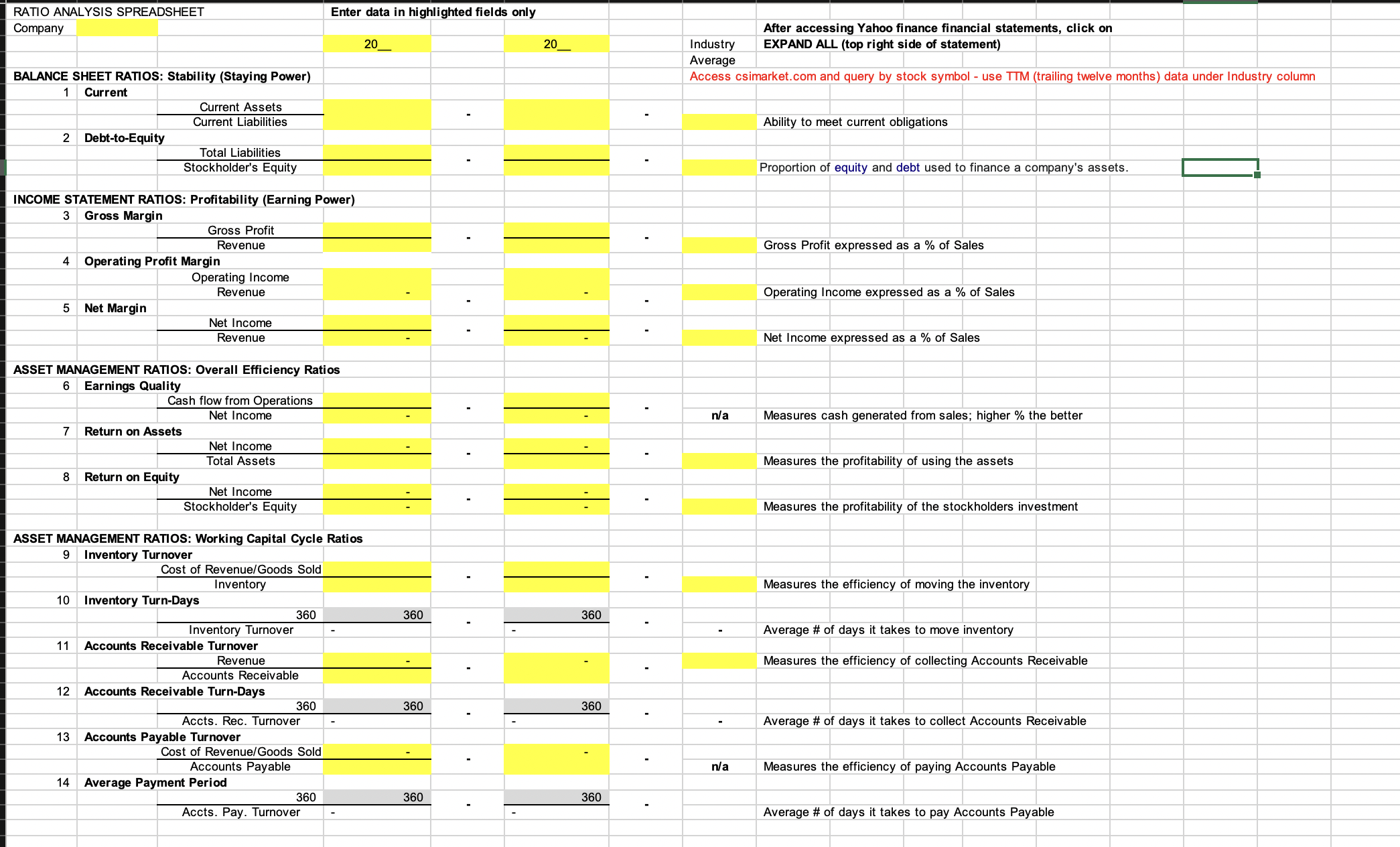Question
Using the ratio analysis template listed in the test instructions, complete the financial analysis of Yum Brands for the two most recent years. Access Yahoo
Using the ratio analysis template listed in the test instructions, complete the financial analysis of Yum Brands for the two most recent years.
Access Yahoo Finance, enter YUM in stock symbol field, Scroll to "Financials" to select financial statements. For each statement, select "Expand All" in top right corner of statement, to view detailed information. Complete the analysis spreadsheet
Using the space below, analyze the company using the two years of data and reference the industry averages in the following areas:
Staying Power
Earning Power
Overall efficiency ratios
Working capital cycle ratios
Use the CSImarket.com website, listed in the instructions, to look up industry averages (Go to site, enter stock symbol, select Fundamentals. Use Industry column to retrieve data for all ratios except Earnings Quality and Accounts Payable turnover). Use TTM industry data. Enter the data in the analysis spreadsheet.
Submit the spreadsheet via question # 24 below.
Complete the analysis in the space below.
https://csimarket.com/

Step by Step Solution
There are 3 Steps involved in it
Step: 1

Get Instant Access to Expert-Tailored Solutions
See step-by-step solutions with expert insights and AI powered tools for academic success
Step: 2

Step: 3

Ace Your Homework with AI
Get the answers you need in no time with our AI-driven, step-by-step assistance
Get Started


